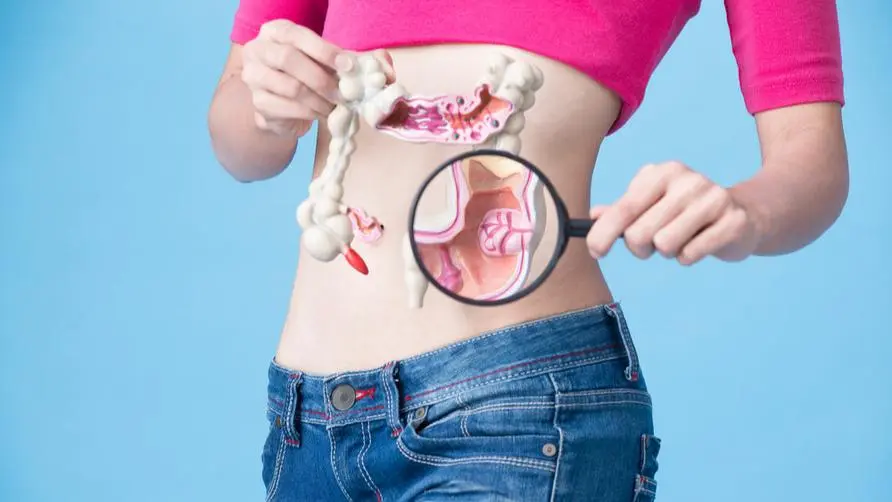A stroke before the age of 30! Why are the risks for "young women" increasing year by year? Doctors point out "2 key points"

“Stroke”, a publication of the American Heart Association, published a study stating that women who suffer from “ischemic stroke” may have a worse prognosis than men, and are more likely to develop mental illness and non-focal symptoms. Dr. Guo Zhidong from the Department of General Cardiology at the Cardiovascular Center of Cathay General Hospital pointed out that it is clinically found that the proportion of strokes in women is increasing year by year, which may be related to gynecological diseases and changes in eating habits.
Women have worse prognosis after stroke? Risk of mental illness may double
Do women have a worse prognosis than men after stroke? Dr. Guo Zhidong explained that one of the differences between men and women suffering from stroke lies in the “symptoms”: In men, the main signs of stroke are weakness in the hands and feet, facial paralysis, or difficulty speaking; in women, the main symptoms are headache, dizziness, epilepsy, numbness in the hands and feet, and even physical symptoms. There are many atypical symptoms such as pain in various parts of the body. It is easy to overlook the potential danger of stroke, or to confuse it with other diseases, and even delay medical treatment.
In addition, clinical diagnosis has also found that women are more likely to suffer from “mental illness” (such as depression) after stroke. Emotional problems may indirectly lead to a decrease in rehabilitation enthusiasm and failure to achieve expected results. “Female symptoms are not obvious before the disease, and the mood is easily affected after the disease, leading to interruption of recovery. Naturally, the prognosis may be worse than that of men!”
Are factors such as race and age potential factors for stroke in women? Dr. Guo Zhidong explained that according to the AHA’s meta-analysis, it was found that African Americans have a higher risk of stroke, which may be caused by sickle cell anemia or frequent medication, but the differences among various ethnic groups are not obvious. However, it is clinically found that the proportion of young women suffering from stroke is increasing year by year.
Are stroke rates among young women rising year by year? Doctors point out “2 major reasons”
Why should young women be aware of the risk of stroke? Dr. Guo Zhidong said that “hypertension” is one of the biggest risk factors for stroke, and both men and women should be vigilant. The potential factors causing stroke in young women aged 25-44 are still related to gynecological diseases and poor living habits.
Dr. Guo Zhidong pointed out that a large proportion of women with high blood pressure during pregnancy do not recover after giving birth, which can easily affect the cerebral blood vessels and cause stroke. In addition, taking birth control pills and postmenopausal women’s hormonal treatment can easily make the blood thicker and cause “thrombosis”; as well as innate immune diseases such as lupus erythematosus; frequent arrhythmias, atrial fibrillation, etc., may all be the causes of younger strokes in women. .
As for living habits, academic circles previously believed that estrogen has a protective effect on cardiovascular disease. In recent years, due to the westernization of diet, the proportion of young people suffering from obesity and chronic diseases has increased year by year. Even though the majority of stroke cases in the past were men, poor eating habits and a preference for high-fat and high-sugar diets, coupled with risk factors such as smoking, can easily lead to hormonal disorders and reduce cardiovascular protection, which are also potential adverse factors for stroke in women. .
Are frequent migraines in women related to stroke? People with a history of cancer should beware of blood clots.
Women are more likely to suffer from “migraines” than men. Is this also a sign of stroke? Dr. Guo Zhidong explained that long-term migraines in women are indeed related to stroke; however, the cause of most migraines is unknown and may be caused by autoimmune diseases or a body that is more prone to blood clots. The symptoms of temporary cerebral ischemia, commonly known as “mini-stroke”, are also related to headaches, but they are easily confused with ordinary migraines, leading to delays in seeking medical treatment.
In addition, Dr. Guo Zhidong also added that any gynecological cancer, such as endometriosis, endometrial cancer, etc., may cause damage to the “endothelial cells” in blood vessels, thereby inducing thrombosis. Receiving radiotherapy and chemotherapy after cancer requires long-term bed rest. Long-term immobility can also easily thicken the blood and cause blood clots. Women with a history of related diseases in the past are urged to pay special attention to the risk of stroke caused by blood clots.
What are the signs of stroke in women? Doctors teach you “4 tips” to avoid the threat of stroke
What are the signs before a woman has a stroke? What behaviors can help prevent stroke? Dr. Guo Zhidong said that when you have unclear speech, crooked face and mouth, or hemiplegia of hands and feet, you should be alert and seek medical treatment as soon as possible within 3 hours to seize the golden treatment period. If you see a doctor within 3 hours, you can still open the blood vessel by injecting thrombolytic drugs; if you don’t see a doctor for more than 3 hours, you will have to undergo a “thrombus removal surgery”, and the prognosis will be poor.
Strokes in young women are more difficult to predict. Generally speaking, if you experience long-term dizziness, explosive headaches, tendency to deviate when walking, or sudden fainting or convulsions, and have no previous history of epilepsy, you should pay attention to whether you have a stroke. Chronic minor strokes can cause memory loss, forgetfulness, and the inability to speak complete vocabulary. Women are urged to pay attention to the related risks.
How can young women prevent stroke? Dr. Guo Zhidong suggested that if you have the problem of three highs, you must actively control it, develop the habit of regularly drawing blood and measuring blood pressure, and those who are taking medication should not stop taking medication without permission. Furthermore, avoid eating high-fat, high-sugar, and high-salt foods in your daily diet; try to exercise more than 4 times a week to avoid sitting for long periods of time, which may cause blood to become sticky. Women who are taking hormonal therapy or birth control pills should discuss dosage with their doctors to initially avoid the occurrence of blood clots, which can lead to strokes.
Further reading:





